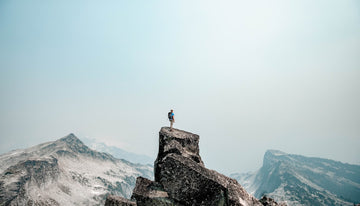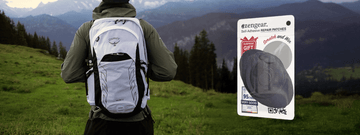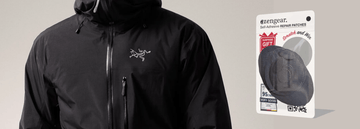Test Your Preparedness Level: Simulating Survival Situations
by Emily Jannet on Sep 04, 2023
In a world where uncertainty seems to be the norm, being prepared for unexpected situations is more important than ever. Emergencies can strike at any time, and having the skills and knowledge to handle them can make a significant difference. One effective way to gauge your preparedness is by simulating survival situations. By intentionally subjecting yourself to challenges such as power outages, adverse weather conditions, or limited resources, you can assess your readiness and identify areas for improvement. In this blog post, we'll explore various ideas on how to simulate survival situations to test your level of preparedness.
Power Outage Preparedness
Electricity is an integral part of modern life, so a sudden power outage can leave you feeling vulnerable. To test your preparedness:
Simulate a blackout: Choose a weekend day and turn off the main power supply to your home. Use this time to rely solely on alternative light sources such as candles, flashlights, or lanterns. This will help you determine whether you have enough backup lighting and whether you can comfortably navigate your home without electricity.
Practice cooking: Prepare meals using non-electric appliances like camp stoves or even open flames. This exercise will familiarize you with cooking methods that don't rely on electric-powered devices.
Assess communication: With most communication devices dependent on electricity, a power outage can sever your connection to the outside world. Test your communication plan by attempting to contact family members or friends using alternative means like walkie-talkies, two-way radios, or even designated meeting spots.
Fire-Making Skills in Challenging Conditions
Fire is a fundamental survival tool. Being able to start a fire, especially in adverse weather conditions, can be a critical skill. To assess your fire-making abilities:
Choose a rainy day: Try starting a fire when the weather isn't ideal. Rain can make everything more challenging, from finding dry tinder to keeping the fire going. This exercise will help you gauge your ability to adapt and overcome obstacles.
Experiment with different fire-starting methods: Challenge yourself by using various methods, such as using a magnifying glass, flint and steel, or friction-based techniques like a bow drill. This will help you identify which methods you're most comfortable with and which ones require more practice.

Practice fire safety: While building and maintaining a fire, prioritize safety. Make sure you have a reliable fire extinguisher and understand how to control the fire, especially when the conditions are less than ideal.
Limited Water Resources
Access to clean water is crucial for survival. Testing your ability to find, purify, and conserve water can be eye-opening:
Limit your water usage: Choose a day to restrict your water consumption to what you can carry in containers or find in natural sources. This will give you insight into how much water you truly need and how to prioritize its use.
Purification techniques: Try purifying water from different sources using methods like boiling, chemical purification tablets, or portable water filters. This will help you determine the effectiveness of your chosen purification methods.
Locate water sources: Practice identifying potential water sources in your surroundings. This skill can be invaluable in a survival situation. Familiarize yourself with local water bodies, springs, and other potential sources of water.
Conclusion
Preparing for survival situations goes beyond acquiring gear and stockpiling supplies. It's about developing practical skills, maintaining a resourceful mindset, and adapting to changing circumstances. Simulating survival situations offers a practical way to evaluate your readiness, identify areas for improvement, and gain confidence in your abilities. By testing your power outage readiness, fire-making skills, and water management techniques, you can enhance your overall level of preparedness.
Remember that preparedness is an ongoing journey. Regularly practicing and refining your survival skills will ensure that you're better equipped to handle unexpected challenges that may arise. So, set aside time to run these simulations, involve family members or friends, and make it a learning experience for everyone involved. Your efforts now can make a world of difference when it truly matters.





